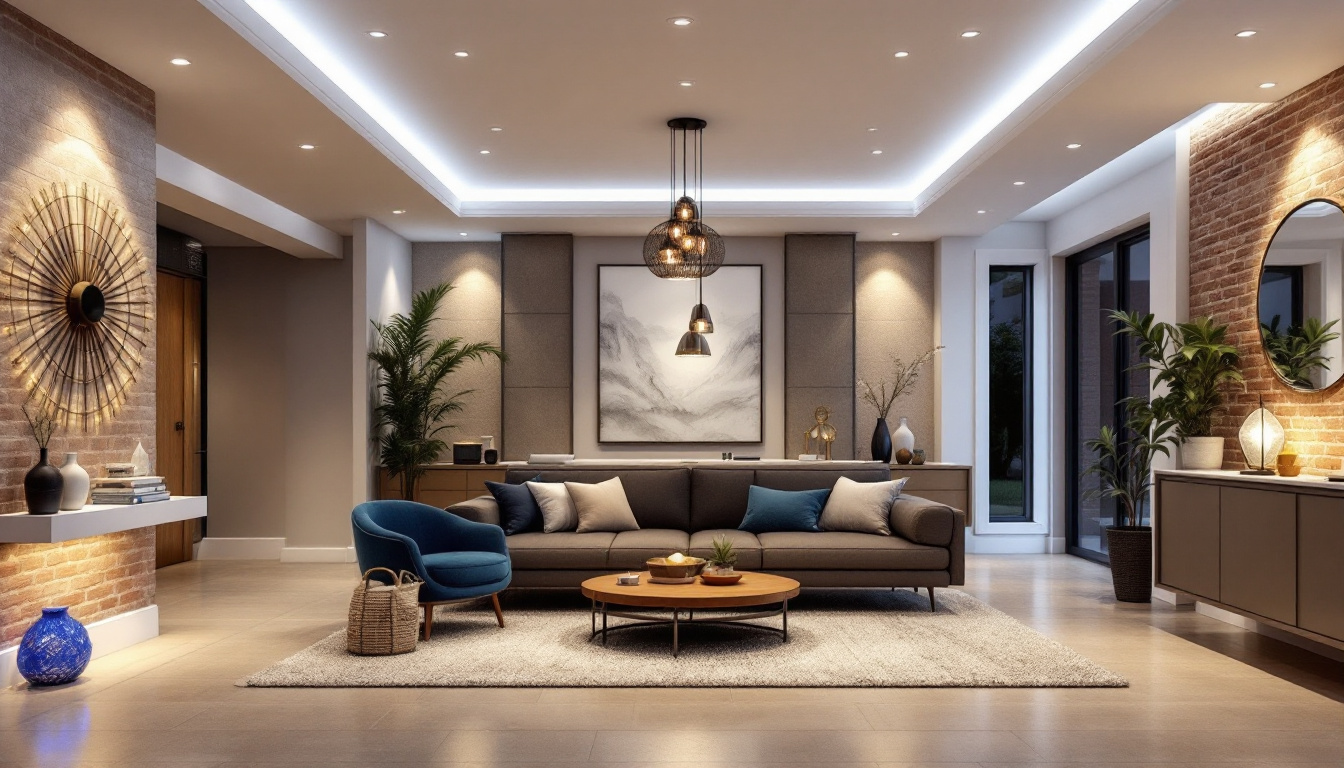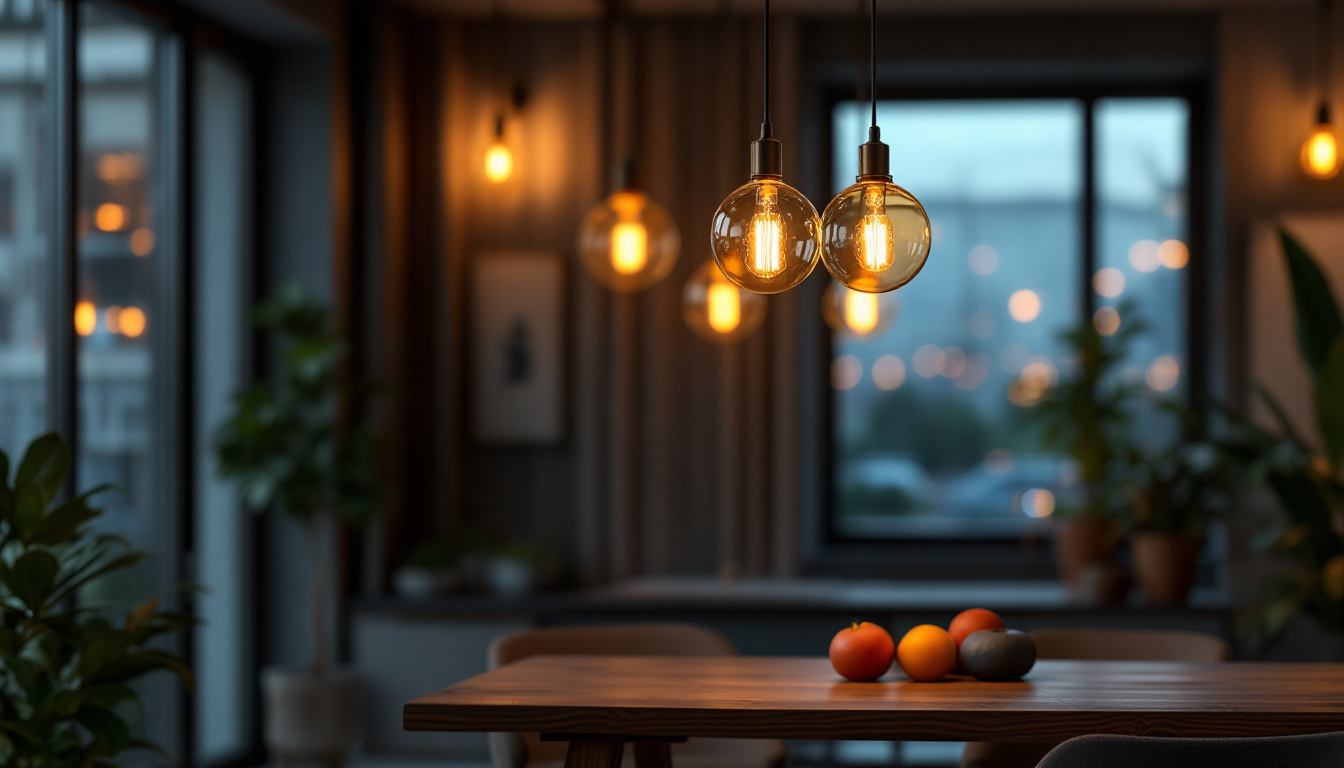
In the world of lighting design and installation, understanding the intricacies of ceiling fixture parts can significantly enhance a contractor’s efficiency and effectiveness. The myriad components that make up a ceiling fixture, from the bulbs to the mounting brackets, play a critical role in the overall functionality and aesthetic appeal of a lighting system. This article delves into the essential parts of ceiling fixtures and explores how lighting contractors can leverage this knowledge for better project outcomes.
Ceiling fixtures are more than just decorative elements; they are complex systems that require a thorough understanding of their components. Each part serves a specific function, and knowing how they work together can help contractors troubleshoot issues, improve installations, and even enhance customer satisfaction.
At the core of every ceiling fixture are several key components that contribute to its performance. These include:
Each of these components plays a vital role in the fixture’s overall function. For instance, the choice of light bulb can affect energy efficiency and light quality, while the mounting bracket ensures safety and stability during installation. Additionally, the shade or diffuser can significantly impact the ambiance of a room, as it influences how light is dispersed and perceived. A well-designed shade can create a warm, inviting glow, while a more modern, minimalist diffuser can lend a sleek, contemporary feel to a space.
Using high-quality parts in ceiling fixtures is crucial for longevity and performance. Inferior components can lead to frequent failures, safety hazards, and increased maintenance costs. Lighting contractors should prioritize sourcing reliable parts to enhance their reputation and build trust with clients. Investing in quality not only reduces the likelihood of callbacks but also improves customer satisfaction, which can lead to repeat business and referrals. Furthermore, the materials used in these components can affect not only durability but also energy consumption. For example, LED bulbs, while initially more expensive, offer significant savings on energy bills over time due to their efficiency and longevity compared to traditional incandescent bulbs.
Moreover, understanding the compatibility of different components can lead to better overall performance. For instance, pairing a high-efficiency LED bulb with a compatible socket and wiring system can maximize energy savings while providing optimal lighting. This synergy between components not only enhances the functionality of the fixture but also contributes to a more sustainable approach to lighting design. As energy efficiency becomes increasingly important in modern construction and renovation projects, contractors who are knowledgeable about these aspects will be better positioned to meet client demands and regulatory standards.
For lighting contractors, having a comprehensive understanding of ceiling fixture parts translates into various benefits. This knowledge can streamline operations, enhance customer interactions, and ultimately lead to more successful projects.
When issues arise with a ceiling fixture, a contractor’s ability to quickly identify the problem can save time and resources. Familiarity with the various components allows for efficient troubleshooting. For example, if a fixture is flickering, knowing whether the issue lies with the bulb, socket, or wiring can lead to a quicker resolution.
Moreover, understanding the common failure points in different types of fixtures can help contractors anticipate potential problems before they occur. This proactive approach not only minimizes downtime but also enhances the contractor’s credibility in the eyes of clients. By being able to explain potential issues and solutions to clients, contractors can foster trust and confidence, ultimately leading to repeat business and referrals.
Knowledge of fixture parts also contributes to more effective installation techniques. Understanding how each component interacts with the others allows contractors to make informed decisions during the installation process. For instance, knowing the weight limits of mounting brackets can prevent accidents and ensure that fixtures are securely installed.
Additionally, being well-versed in the specifications of various parts can help contractors select the right components for specific applications, ensuring optimal performance and safety. This expertise can set a contractor apart from competitors who may not have the same level of knowledge. Furthermore, a thorough understanding of the electrical requirements and compatibility of different fixtures can lead to more efficient energy use, which is increasingly important in today’s eco-conscious market. By recommending energy-efficient options, contractors not only enhance their service offerings but also contribute to sustainability efforts, appealing to a broader client base.
Different lighting projects may require different types of ceiling fixtures and components. Understanding the specific needs of each application is essential for selecting the right parts.
Residential lighting often focuses on aesthetics and ambiance, while commercial installations prioritize functionality and energy efficiency. Contractors should consider the specific requirements of each project type when selecting fixture parts.
In residential settings, decorative elements such as shades and finishes may take precedence. In contrast, commercial projects may require fixtures that are more durable and energy-efficient, such as LED options with longer lifespans. Understanding these differences can help contractors make better choices that align with client expectations and project goals.
Moreover, the scale of the installation can greatly influence the choice of components. For instance, a cozy living room might benefit from dimmable fixtures that allow for mood lighting, while a large office space may need a combination of task lighting and ambient lighting to ensure that all areas are adequately illuminated. This nuanced understanding of how different environments interact with light can lead to more tailored and effective lighting solutions.
As energy efficiency becomes increasingly important, contractors must stay informed about the latest advancements in lighting technology. Choosing energy-efficient components, such as LED bulbs and fixtures with high efficacy ratings, can significantly reduce energy consumption and operating costs.
Furthermore, educating clients about the benefits of energy-efficient lighting can enhance the contractor’s value proposition. By demonstrating knowledge of energy-saving options, contractors can position themselves as experts in sustainable lighting solutions.
Additionally, incorporating smart lighting systems can further elevate energy efficiency. These systems allow for automated adjustments based on occupancy or natural light levels, ensuring that energy is not wasted when spaces are unoccupied. Clients are often impressed by the prospect of integrating technology that not only saves money but also contributes to a greener environment. This forward-thinking approach not only meets current demands but also prepares clients for future advancements in smart home and commercial technologies.
The lighting industry is constantly evolving, with new technologies and design trends emerging regularly. For lighting contractors, staying updated on these changes is essential for maintaining a competitive edge.
Advancements in smart lighting technology, such as programmable fixtures and integrated controls, are transforming the way lighting is designed and installed. Contractors should familiarize themselves with these technologies to offer clients the latest innovations in lighting solutions.
Additionally, understanding how to integrate smart technology into existing systems can open new avenues for contractors, allowing them to provide comprehensive services that meet modern demands.
Design trends in lighting can significantly influence the selection of ceiling fixture parts. For instance, the popularity of minimalist designs may lead to a preference for sleek, unobtrusive fixtures, while vintage styles may call for more ornate components.
By keeping abreast of design trends, contractors can better advise clients on fixture selections that align with their aesthetic preferences and functional needs. This knowledge can also help contractors anticipate market demands and adjust their offerings accordingly.
A contractor’s relationship with suppliers can greatly impact the quality of materials used in projects. Establishing strong partnerships with reputable suppliers can lead to better pricing, access to high-quality parts, and improved support.
Lighting contractors who maintain good relationships with suppliers can often negotiate better pricing on bulk orders or receive discounts on high-demand items. This can significantly reduce project costs and enhance profitability.
Additionally, suppliers may provide valuable insights into new products and trends, helping contractors stay informed and competitive in the market.
Having a reliable supplier can also mean access to technical support. When issues arise with specific parts or installations, being able to consult with knowledgeable representatives can save contractors time and effort in troubleshooting.
Furthermore, suppliers may offer training sessions or resources that can enhance a contractor’s understanding of new products and technologies, further improving their service offerings.
In conclusion, a thorough understanding of ceiling fixture parts is invaluable for lighting contractors. This knowledge not only enhances troubleshooting and installation skills but also allows for better decision-making in selecting components for various applications. Staying updated on industry trends and building strong relationships with suppliers can further bolster a contractor’s success in the competitive lighting market.
By prioritizing quality parts and understanding their functions, lighting contractors can improve project outcomes, increase customer satisfaction, and ultimately build a thriving business. Embracing the complexities of ceiling fixture components is not just beneficial; it is essential for any contractor looking to excel in the ever-evolving world of lighting design and installation.
Ready to elevate your lighting projects with the highest quality ceiling fixture parts? Look no further than LumenWholesale, where we provide contractors with spec-grade lighting products at unbeatable wholesale prices. Say goodbye to middleman markups and hello to superior lighting that meets the most rigorous industry standards. With our hassle-free bulk buying and free shipping, you can ensure your projects shine with reliability and performance, all while keeping costs down. Don’t compromise on quality or value—visit LumenWholesale for Wholesale Lighting at the Best Value today and experience the difference for yourself.

Discover essential basement lighting ideas that every lighting contractor needs to know.

Discover everything contractors need to know about large solar-powered garden lights—benefits, installation tips, and key insights to enhance outdoor lighting projects..

Discover the essential checklist for lighting contractors working with General Electric LED lamps.

Discover the transformative power of hanging light fixtures in lighting installations.